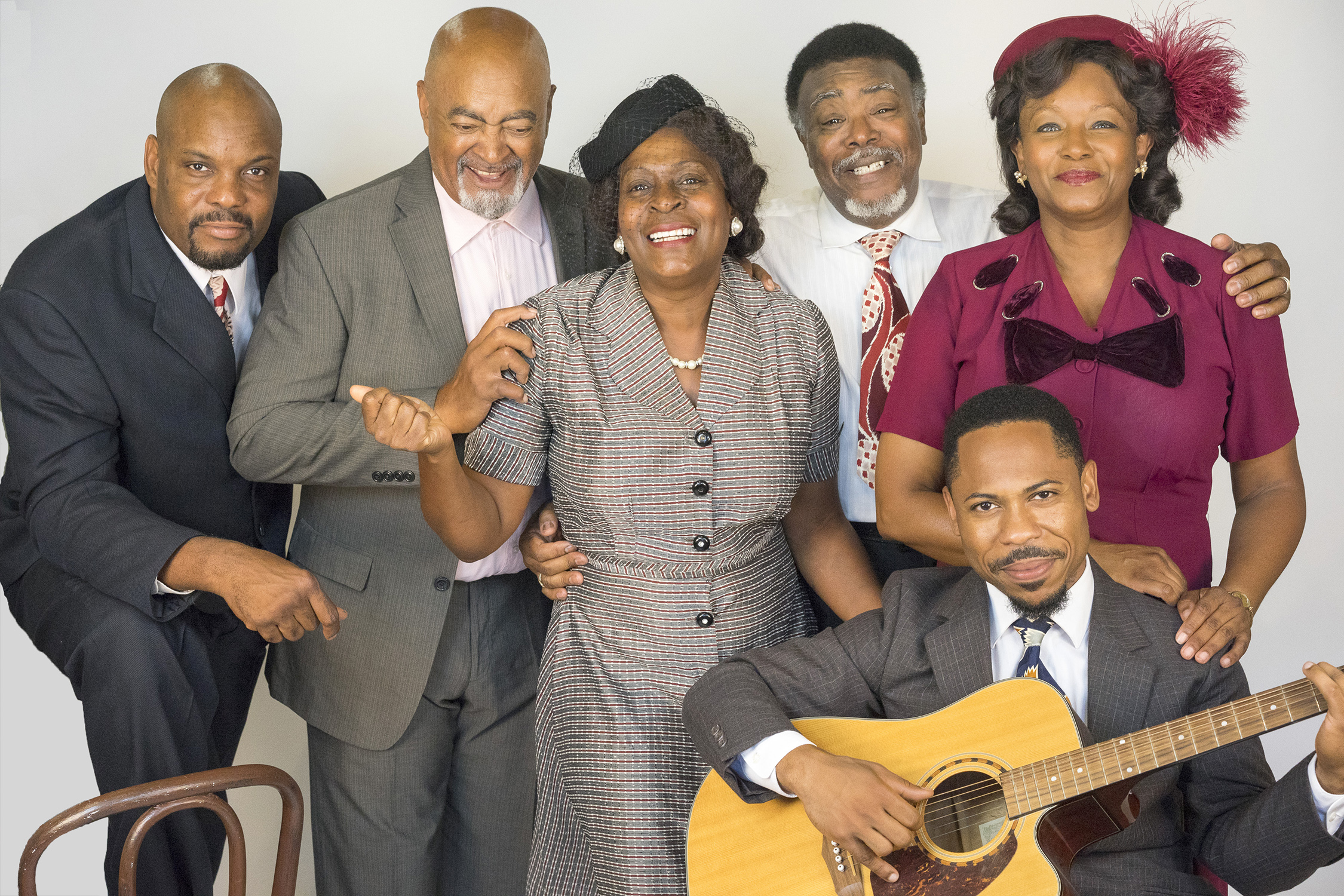
By Barbara Smith
 A first-ever pairing of two of August Wilson’s groundbreaking plays, “Seven Guitars” and “King Hedley II,” will be performed in rotating repertory at San Diego’s Cygnet Theatre in Old Town, beginning Sept. 28. Wilson is an icon in American theater, a game changer whose “decade plays”—a cycle of 10 plays representing the 10 decades of the twentieth century–explored the African American experience while having a wide appeal to varied audiences because of their universal connection to our sense of humanity.
A first-ever pairing of two of August Wilson’s groundbreaking plays, “Seven Guitars” and “King Hedley II,” will be performed in rotating repertory at San Diego’s Cygnet Theatre in Old Town, beginning Sept. 28. Wilson is an icon in American theater, a game changer whose “decade plays”—a cycle of 10 plays representing the 10 decades of the twentieth century–explored the African American experience while having a wide appeal to varied audiences because of their universal connection to our sense of humanity.
A diverse gathering of community members, theatre professionals and media shared breakfast and conversation recently at the Cosmopolitan Hotel with director Jennifer Nelson, associate director Lydia Fort and Cygnet’s artistic director Sean Murray. It was a kind of breaking bread, part of a continuing outreach by Cygnet, whose vision is to build an ongoing relationship with San Diego’s diverse theater community by presenting a selection of plays that will keep people talking, engaged and coming back for more.
The presentation of these two plays by the Pulitzer Prize-winning playwright is certain to do just that. Wilson was an internationally beloved playwright and poet, music-lover and storyteller, activist, humorist, and, as his lasting legacy, chronicler of a century of Black experience. He was once described by New York Times critic Frank Rich as a playwright who “sends the entire history of black America crashing down upon our heads.”
The ten plays of August Wilson’s cycle constitute one of the major achievements of modern American literature. The plays brought him two Pulitzer Prizes, one Tony Award, and numerous other accolades. Rising from humble beginnings, the Pittsburgh native, whose plays always bear the signature of life in the Hill District of that American city, began his century cycle in 1984 with “Ma Rainey’s Black Bottom,” which is set in 1927 Chicago during a recording session at a white-owned studio with the legendary singer; Tony-winning “Radio Golf,” first performed in 2005, was the final installment in his 10-part series, a story in which Wilson used golf for a treatise on the black middle class, raising the question “Do you have to adopt the games of the dominant culture to achieve success?” Wilson tragically died at the age of 60, shortly after completing this play.
With this program, Cygnet will have produced five August Wilson shows, and, says artistic director Murray, “We are committed to producing all ten. His plays affect all of us on so many levels. You become engrossed in this world. You lose yourself. You care about the characters because he presents humanity. Even though it’s about Pittsburgh, it’s still about the universe.”
Some of those gathered were familiar with Wilson’s work and some were new in the scene, but a palpable excitement permeated as Nelson and associate director Fort described their passion for the elegance and eloquence of Wilson’s stories and language.
The pairing of these two plays is a brilliant concept that presents an exciting challenge, says Nelson, an accomplished Washington, DC director, who has, with the current two productions, helmed eight Wilson shows. “Seven Guitars,” which was written in 1995 and takes place in the 1940’s, tracks the events that lead to blues singer and guitarist Floyd “Schoolboy” Baron’s death. With “King Hedley II,” one of Wilson’s darkest plays, written in 1999 and taking place in the 1980s, an ex-con tries to start anew by selling refrigerators with the intent of buying a video store. Characters from “Seven Guitars” reappear in
“King Hedley II,” an occurrence not unique to other of Wilson’s plays. With these two plays in repertory, not only do the actors have to embrace two roles, they also need to be adept at switching eras, she says. The cast of seven versatile actors who make up the cast are supremely up to the challenge, Nelson adds, and includes several Cygnet Theatre and August Wilson veterans, whom Murray affectionately calls “the Wilson soldiers,” as well as some new to the Cygnet stage. These actors include Ro Boddie, Laurence Brown, Grandison Phelps III, Antonio TJ Johnson, Yolanda Franklin, Milena Phillips, and Yvonne. Two of these accomplished actors, Brown and Franklin, presented a riveting scene between husband and wife in “King Hedley II,” poignant in its examination of the tender tightrope his characters walk in trying to navigate a complex world.
Says Nelson, “Even his least strong plays are stronger than those penned by others. He deals with how the African-American community dealt with issues of each era. Things have changed but in many ways we’re dealing with the same issues. For instance, there is a lot of talk about incarceration in these plays, how people are treated by the police. Who gets arrested, who gets stopped, the struggle in life these men have trying to do the right thing–this is all very current. These plays are relevant to Black Lives Matter.”
Another aspect of Wilson’s impact on American theater and one that made him popular with African-Americans was his resolve on creating job opportunities for black people. He insisted that his works be led by black directors, Nelson explains. “He has made careers and enhanced careers. He was a poet before he was a playwright. He would go to barbershops and take notes, pick up on the rhythms of language. This morphed into plays. He was self-taught. He began writing with Lloyd Richards, dean of the Yale School of Drama. Richards mentored his brilliance and nurtured his craft. Wilson’s dialogue is like a poem. Part of my job as director is how to put that beautiful language on stage so that it holds its beauty and artistry. His gift is his ability to blend the poetic with authentic vernacular, and, because his dialogue is so rich and dense, it’s a great challenge but a fun challenge. He is an American Shakespeare.”
Performances run through November 6. For more information call 619-337-1525 or visit www.cygnettheatre.com

